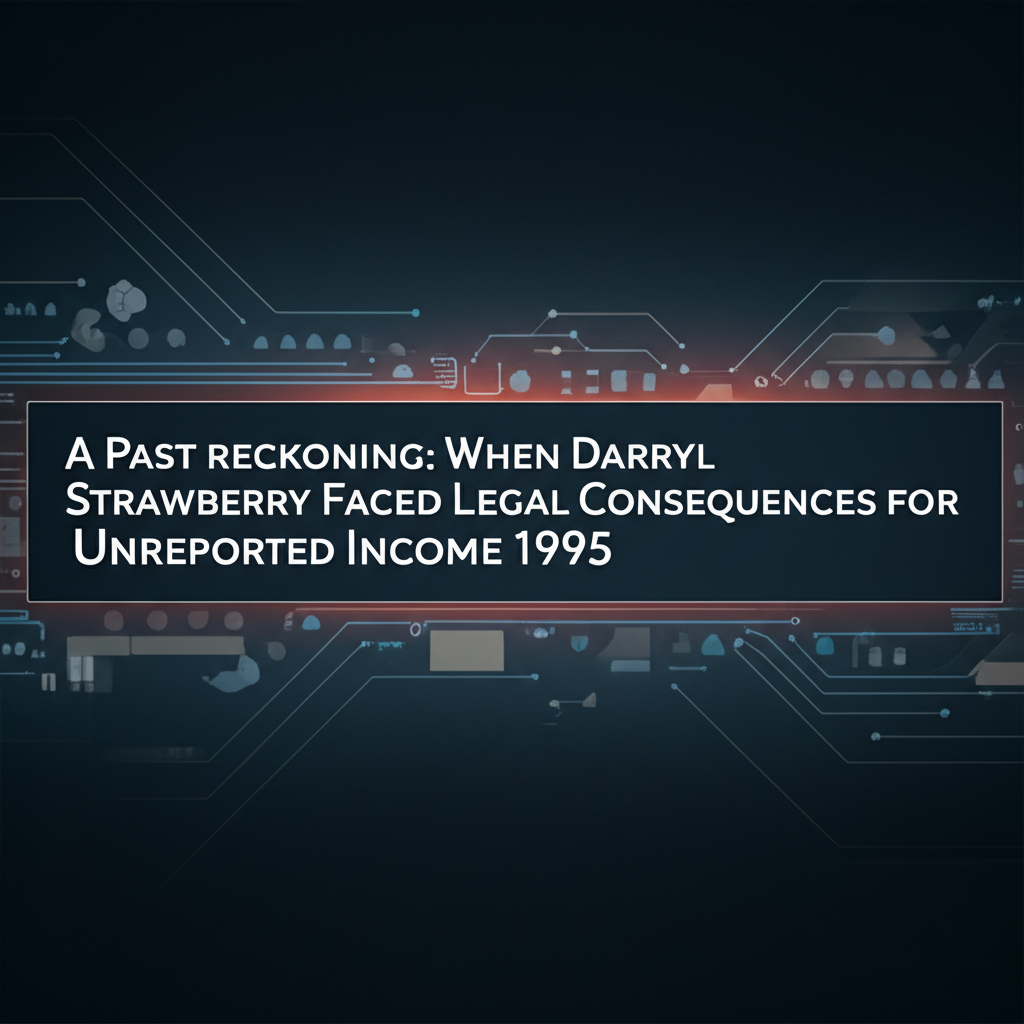In the annals of sports history, the name Darryl Strawberry evokes images of powerful home runs and a charismatic presence on the baseball field. However, beyond the highlights and accolades, his career and personal life were also marked by significant challenges, including a notable legal battle in 1995. This event served as a stark reminder that even public figures must adhere to financial regulations and face the consequences when they do not.
The Felony Plea: Unreported Earnings
In 1995, Strawberry pleaded guilty to a felony charge. The core of the issue revolved around his failure to report a substantial amount of income – an estimated $350,000. This money was not from his standard baseball salary but rather from various supplementary sources common for high-profile athletes:
- • Autographs: Income generated from signing memorabilia for fans.
- • Personal Appearances: Fees received for attending events, speaking engagements, or promotional activities.
- • Sales of Memorabilia: Revenue from the sale of sports collectibles and items associated with his likeness and career.

Image source: /api/unsplash?keyword=autographs%20memorabilia%20income%20tax (Photo by Mehebub Alam (https://unsplash.com/@akashkhanakm78) on Unsplash)
The failure to declare these earnings to the proper authorities constituted a serious legal offense, leading to the felony conviction that became part of his public record.
The Broader Implications for Public Figures
The case of Darryl Strawberry serves as a crucial reminder for all public figures about the importance of rigorous financial management and ethical conduct. For athletes, actors, and other celebrities, income streams can be diverse and complex, often extending far beyond their primary employment. The responsibility to accurately report all earnings to tax authorities is paramount, regardless of the source.
Such legal issues can have far-reaching consequences, impacting not only personal freedom and financial standing but also public image and the trust placed in them by fans and employers. For Strawberry, this legal challenge added another layer of complexity to an already tumultuous period in his life, underscoring the scrutiny that comes with fame.

Image source: /api/unsplash?keyword=financial%20ethics%20responsibility%20public%20figure (Photo by Mehebub Alam (https://unsplash.com/@akashkhanakm78) on Unsplash)
Lessons from the Past
While this event occurred decades ago, the lessons it offers remain timeless. Transparency, accountability, and adherence to legal obligations are fundamental, especially for those in the public eye. The case of Darryl Strawberry highlights the critical need for comprehensive financial advice and diligent record-keeping to avoid inadvertent or intentional legal entanglements. It’s a testament to the fact that past actions, particularly legal ones, can continue to be a part of a public narrative.
Source: News snippet from November 7, 2025 (originally referencing a 1995 event).






